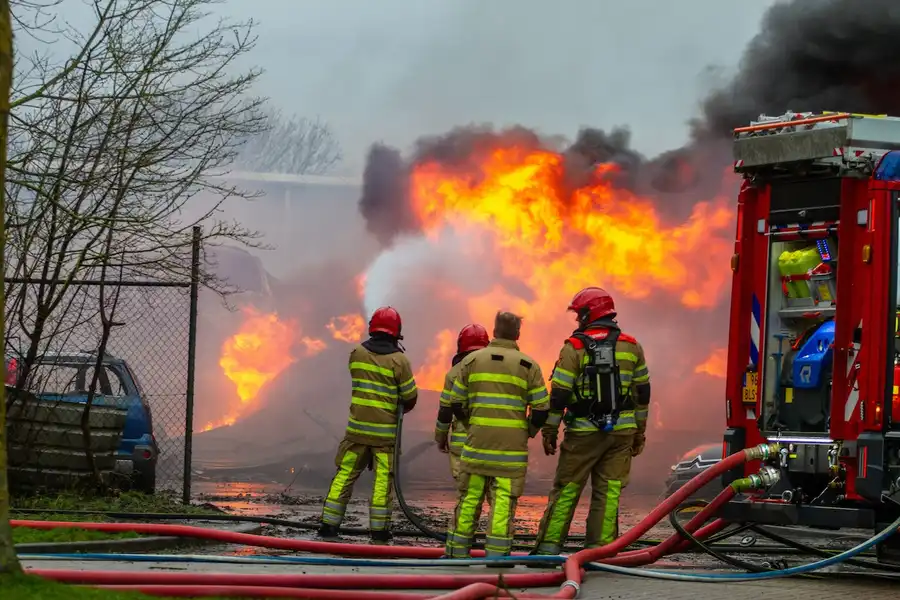Introduction
Fire safety is a crucial aspect of property management, especially in commercial and industrial buildings, and it’s an integral part of what you’ll learn in a comprehensive property management course. Fire engineering, also known as fire protection engineering, is the process of designing and implementing fire safety systems and procedures to minimize the risk of fire and ensure the safety of building occupants. A fire engineer is a professional who specializes in fire safety engineering and can help you assess your building’s fire safety needs, design appropriate systems and procedures, and ensure compliance with fire safety codes and regulations. In this article, we’ll provide you with the ultimate guide to fire engineering, covering everything you need to know to keep your property safe.
Fire Risk Assessment
The first step in fire engineering is to conduct a fire risk assessment. This involves identifying potential fire hazards in your building, assessing the level of risk associated with each hazard, and implementing measures to reduce or eliminate these risks. A fire risk assessment should be conducted regularly to ensure that any new hazards are identified and addressed.
In addition to identifying hazards, a fire risk assessment should also consider the occupancy of the building, the materials and equipment present, and the potential consequences of a fire. This information can help inform the design of fire safety systems and procedures that are appropriate for your building’s unique needs.
Fire Detection and Alarm Systems
Fire detection and alarm systems are essential for early detection of fires and prompt evacuation of building occupants. These systems typically include smoke detectors, heat detectors, and fire alarms, which are interconnected and monitored by a central control panel.
When designing a fire detection and alarm system, it’s important to consider the size and layout of the building, as well as the needs of the occupants. For example, a high-rise building may require multiple alarm zones and voice communication systems to ensure that all occupants are notified in the event of a fire.
Fire Suppression Systems
Fire suppression systems, such as sprinkler systems, are designed to control or extinguish fires in their early stages before they can cause significant damage or harm. These systems are typically designed based on the specific needs of the building and its occupants and may include automatic or manual activation.
When designing a fire suppression system, it’s important to consider the occupancy of the building, the type of fire hazards present, and the potential consequences of a fire. For example, a data center may require a clean agent suppression system to protect sensitive electronic equipment, while a manufacturing facility may require a foam suppression system to control fires involving flammable liquids.
Fire Safety Training
Proper fire safety training is essential for all building occupants, including employees, tenants, and visitors. Training should cover the proper use of fire safety equipment, evacuation procedures, and emergency response protocols. Regular fire drills should also be conducted to ensure that building occupants are prepared in case of a fire.
When developing a fire safety training program, it’s important to consider the needs of different groups of occupants. For example, employees in a manufacturing facility may require specialized training on handling hazardous materials and responding to fires involving these materials.
Fire Protection Engineering
Fire protection engineering involves the design and implementation of fire safety systems and procedures, including fire detection and alarm systems, fire suppression systems, and fire safety training. A fire protection engineer can help you assess your property‘s fire safety needs, design appropriate systems and procedures, and ensure compliance with fire safety codes and regulations.
When working with a fire protection engineer, it’s important to choose a reputable and experienced firm. Look for firms with certifications and accreditations, and ask for references and case studies to ensure that they have the expertise and track record to meet your needs.
Conclusion
By following these tips, you can ensure that your property is equipped with the necessary fire safety systems and procedures to minimize the risk of fire and ensure the safety of building occupants. Working with a reputable fire engineering company can help you assess your building’s specific needs and design a customized fire safety plan that meets your requirements and budget. With proper fire engineering, you can rest assured that your property is protected from the dangers of fire.
